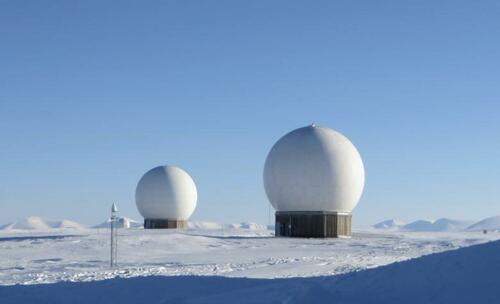China's Expanding Space And Arctic Reach Raises Western Concerns
As the world moves closer to The Matrix, China is moving closer to Star Wars. The country's drive to gain autonomy in critical technologies has pushed it deeper into space, the deep sea and the Arctic, according to a new article from the South China Morning Post.
After the Yinhe incident and later exclusion from Europe’s Galileo programme, Beijing built the BeiDou navigation system, now a 64-satellite network used over a trillion times daily. This move from dependence to autonomy now defines its national strategy. Recent five-year plans highlight deep-sea, polar and aerospace projects as “forward-looking and strategic,” and aim to make China a “major space power,” including an “ice Silk Road” to strengthen its polar role.
Analysts say China’s capabilities now rival global leaders. Li Hanming says “China’s space technology is at the same level as other leading players, such as the European Union, United States or Russia.”
BeiDou sits alongside other global navigation systems, and Tiangong mirrors the ISS. Commercial progress is rapid as well: LandSpace is testing a reusable first-stage rocket, prompting US worries. Brigadier General Brian Sidari warned it would be “concerning once they figure out that reusable lift,” since it could enable large satellite constellations. China’s Qianfan system has about 90 satellites but aims for 15,000 by 2030.

SCMP writes that China’s Arctic footprint is also expanding. The Tan Suo San Hao recently completed another Arctic mission, with state media saying China is now the only country capable of continuous manned deep-sea dives in dense Arctic ice zones. New icebreakers, research stations and private cruise operations bolster its presence.
Europe fears it is losing ground; a Mercator Institute study warned that “China's footprint in the Arctic and space demands urgent attention,” citing risks to security and access to key minerals and energy. Katja Bego notes Europe’s slow investment has “helped open the door to actors with fewer scruples, such as China.”
China’s growing cooperation with Russia heightens these concerns. The two plan a joint lunar base and a lunar nuclear power plant, with Russian Arctic expertise complementing China’s ambitions. As Merics observed, “Russia's contributions in the Arctic and space are substantial, and in many cases complementary to China's capabilities.”
Western confidence in its technological lead is starting to waver. Charles Austin Jordan said, “That sentiment is primed to turn very quickly … even moderate progress by China … could quickly ignite severe anxieties.” Chinese experts argue the fears are exaggerated. Shan Guangcun says China is focused on reducing vulnerability after repeated restrictions: “Breaking through in these areas means freeing Beijing from dependence on others in core technologies,” and “Ensuring technological autonomy … has become a cornerstone of national security.”
He attributes Western reactions to shifting power dynamics, ideology and real concerns, saying “Some of the West's anxiety reflects a natural wariness … some stems from ideological bias … some is based on genuine security concerns.” Li Hanming adds the US sees threat partly because “historically they themselves used space technology as a tool of deterrence.”


